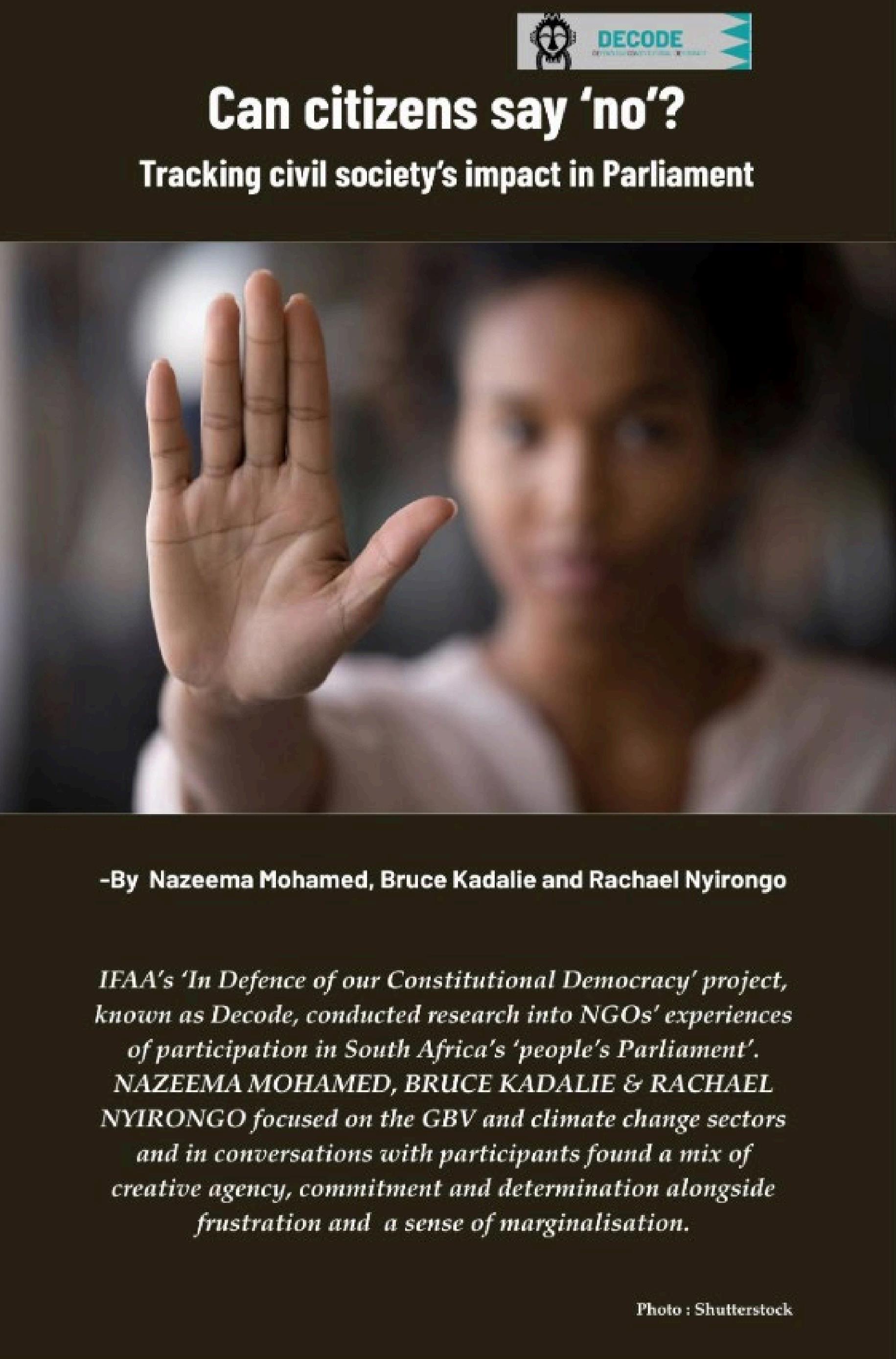Can citizens say 'no'?: Tracking civil society's impact in Parliament
DOI:
https://doi.org/10.14426/na.v97i1.2892Keywords:
South Africa, Democratic framework, Constitution, Citizen involvement, Parliament, Civil society participation, Participatory democracy, DemocracyAbstract
Active citizen involvement, a foundational element of South Africa's democratic framework, aims to ensure that all voices, especially those historically on the margins, are acknowledged and actively incorporated into policy decision-making. Yet this fine principle, clearly stipulated in the Constitution, encounters a fundamental contradiction when it comes up against the challenges of implementation.
In reality, South Africa’s organised civil society today, itself the product of an powerful history of community-based resistance that overcame apartheid, is impeded from fulfilling this constitutional duty by severe shortages of capacity and resources. It is trapped in a tangle of bureaucratic inefficiencies, fragmented government coordination and limited public engagement and awareness.
Downloads

Downloads
Published
Issue
Section
License

This work is licensed under a Creative Commons Attribution-NoDerivatives 4.0 International License.




